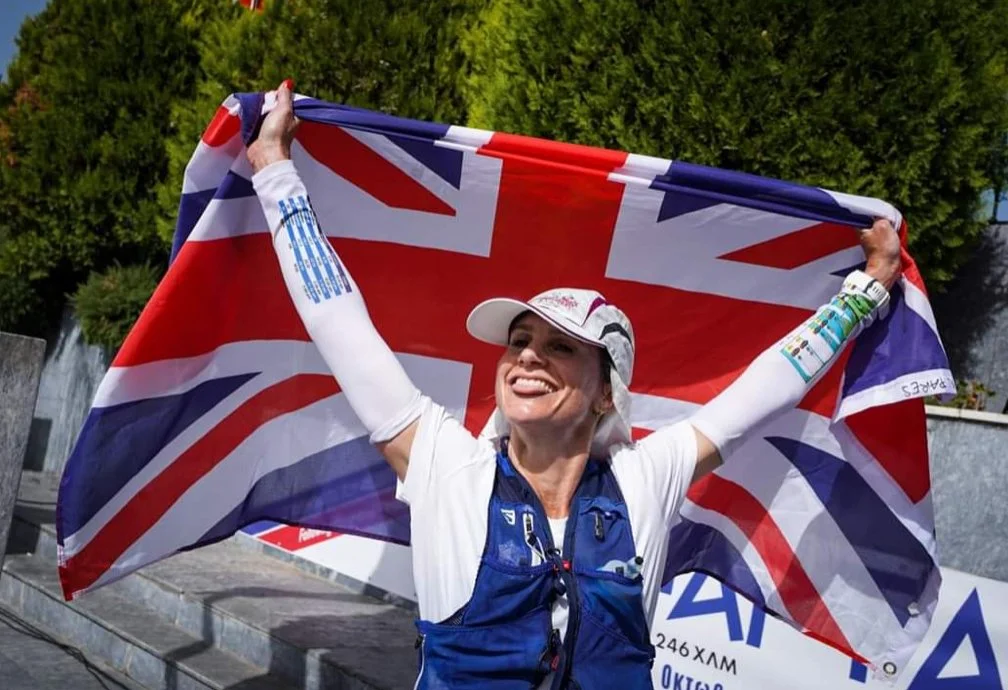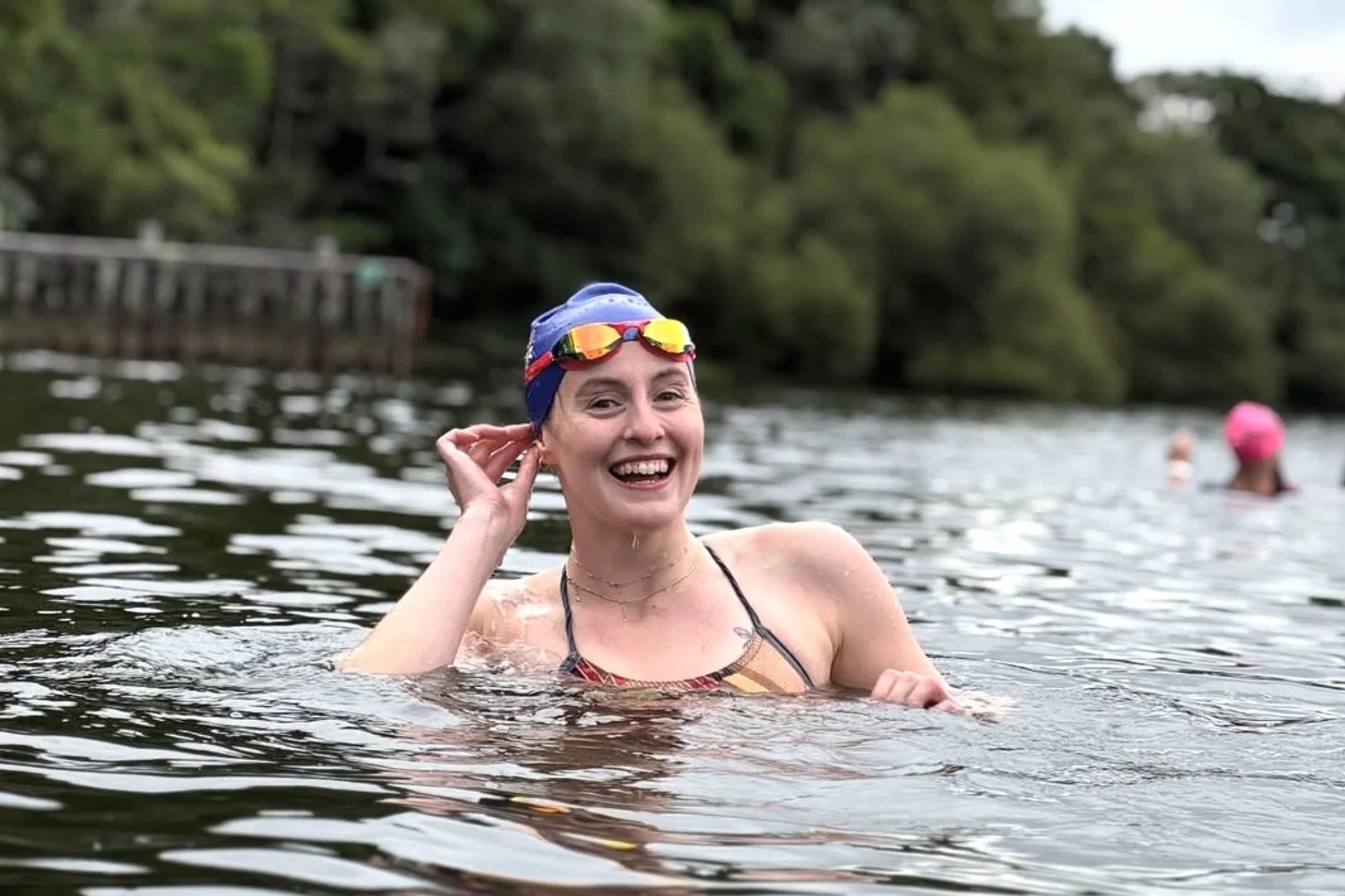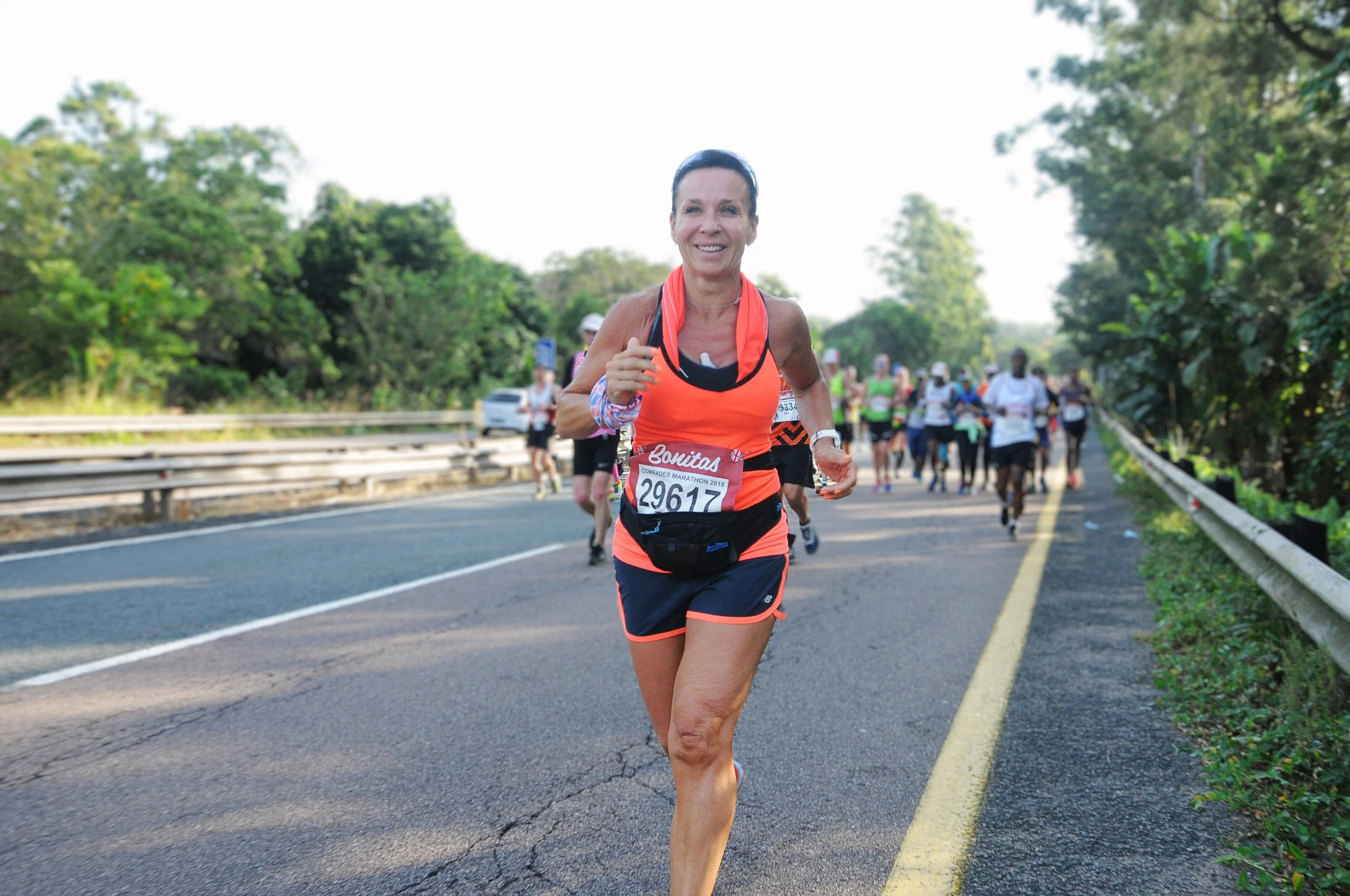Getting it done
Ali Young is the only British woman to complete the historic 153-mile ultra-distance foot race Spartathlon (Athens to Sparta in Greece) three times
Ultra runner Ali Young has conquered some of the planet’s toughest endurance races. Her incredible career highlights include being the only British woman to complete the 153-mile Spartathlon three times, recording the fastest-ever British female finish at the 135-mile Badwater race in July 2025, and winning team gold with Great Britain at the 2025 World 24 Hour Championships.
Speaking exclusively to The 1v1 Project, Ali reflects on the mindset that fuels her endurance races – and why the hardest, most gruelling moments are often the most meaningful for building resilience off the track.
Ali is honest about what goes through her mind during these events. “I’m not someone who says to myself, ‘Just get in the zone and go with it.’ My head’s always telling me, ‘This is rubbish, this is rubbish. When can I eat again? When can I drink next?’”
It’s no surprise, then, that a zen-like mindset never really kicks in during a race. “At some point in the middle, maybe I find that calm,” Ali adds. “But when people say they go into meditation, that’s not really me. I’m definitely never in a kind of meditative state. It really is just a hard slog the whole way.”
“I’m definitely never in a kind of meditative state. It really is just a hard slog the whole way”
Riding the waves
It’s not the absence of negative thoughts that eases the pain of each race for Ali – it’s the ability to manage them. “Through experience, I know there are going to be ups and downs. I know it’s going to hurt. I’ll just ride it out and know it will feel better soon.”
Any strategy is built on practicality rather than philosophy. “There are things I can focus on to make it better,” explains Ali. “One distraction could be, ‘Oh, let’s bring some music in.’ I like to leave that to a bit later. I’ll put some dance tunes on; that always livens me up. Then there are thoughts like, ‘Do I need more food? Or when’s my next caffeine boost due?’”
Leaning on these distractions is especially important in 24-hour races, where runners compete to cover the greatest distance by repeatedly running laps around a 400-metre track. In this scenario – in contrast to point-to-point races where competitors spread out naturally – there’s no escaping what’s going on around you.
“On a track, you constantly see your competitors,” says Ali. “It’s such a mind game. You could stop anywhere. Your crew is always there. The car is always there. It’s a whole other level of mental strength.”
This makes patience absolutely crucial: “You can’t start competing too early in a 24-hour event – you risk exhausting yourself mentally as well as physically,” she notes. “It’s important to run your own race and save the competition for the final four hours.”
“When people say they go into meditation, that’s not really me. I’m definitely never in a kind of meditative state”
Ultimate challenge
Ali didn’t always see herself as someone who’d take on some of the world’s toughest endurance events. “I played hockey in my teens and did a little bit of running for cross country and athletics, but nothing special,” she reveals.
It wasn’t until after having children that she began running more seriously, completing her first marathon at 35.
Like many, it started with shorter races. “The usual progression,” Ali says – 10ks, half marathons, then the London Marathon. But a special occasion marked a turning point. “I’d seen Marathon des Sables in Runner’s World, and I decided to do that for my 40th birthday. That was going to be it for ultra running.”
But it was an event that triggered a new chapter. “It’s like when you have a baby – this whole world comes to you,” Ali jokes. “It’s the same if you get a dog, you then meet loads of other dogs. It's funny, isn’t it? I was meeting lots of people who had done crazy stuff.”
When someone mentioned a 24-hour race, Ali initially dismissed the suggestion, but the idea had quietly taken root: “You’re told about things that you don’t even realise you’ve absorbed, but they’re stored away in your subconscious.”
In the end, it was the purity of the race that proved compelling: “It’s the ultimate challenge. It’s simply, how far can you run in 24 hours?”
Photo credit: @aliyoungrun. Ali was part of the Great Britain women’s team who won gold at the 2025 IAU World 24 Hour Championships
Adapting on the go
Ali went on to qualify for Great Britain in her first attempt at a 24-hour race, and credits her initial success, in part, to naivety. “It started with the simple thought of, ‘Oh, I wonder what I can do,’” she remembers. “I wasn’t worrying about anyone else; I was focused on my own race. I feel the pressure now, but I’m more experienced. I know what to expect.
“I’m proud of what I’ve done, but you can’t take yourself too seriously,” Ali adds. “If people take a certain race too seriously, if they put everything into it, they can end up exhausted. I kind of go with the flow.”
Ali’s philosophy of curiosity over stress has proved immensely successful. She has since competed in three World Championships and two European Championships, setting a personal best of 139.51 miles within a single 24-hour period.
Her mastery of the 24-hour format culminated in Ali winning gold with the Great Britain women’s team at the 2025 IAU World 24 Hour Championships.
“I feel the pressure now, but I’m more experienced. I know what to expect”
More than mileage
But there’s much more to running than mileage. Many of Ali’s races have supported charitable causes, from Alzheimer’s Society, focusing on dementia research and care, to Arctic One, a foundation that supports sports participation for people with disabilities. For the 2025 London Marathon, she raised funds for cancer care specialists Maggie’s in memory of her dad.
“All I’ve got to do is run a track or a route. I can do that,” Ali acknowledges. “All those people who can’t run – they would love to be doing what I’m doing. That gives you a massive reason to keep going. People don’t realise that a good deed gives you a huge kick. It works both ways. Kindness is a big circle.”
Having this why means that quitting is never an option, even in the toughest of races: “I’m not considering that I’m going to stop. You sign up to a race; you make an intention; and you finish the job.”
It’s not always serious, either. As well as raising money for Maggie’s, Ali set a new Guinness World Record at the 2025 London Marathon, finishing the race in 3 hours and 26 minutes dressed as a penguin – a nod to one of her dad’s favourite animals. It’s officially the fastest time recorded by a female marathon runner in the bird category.
Photo credit: @aliyoungrun. Ali set a new Guinness World Record at the 2025 London Marathon, recording the fastest time by a female runner in the bird category
Anyone can do it
There’s no runner’s high or any special mental technique to reach the finish line – Ali’s approach is straightforward and down to earth. It’s perhaps key to why she’s still qualifying for Great Britain a decade later.
“No one cares,” she says. “Running doesn’t define me. My friends and family love me for me. I’m not going to lose anything by not doing well. It’s just a case of cracking on and getting it done.”
As Ali prepares for the next series of challenges, there’s no space for overthinking or overtraining. What matters is simply showing up prepared and letting the race unfold.
“As long as I do my best and really feel in good shape at the start line, what will be, will be. It’s best not to overthink these things.”
And one final thought reaches far beyond running: “If you had to get a message to a loved one who is ill, you would go as far as you needed to.
“We can all do it if we have to.”
Ali Young
FEATURED STORIES









